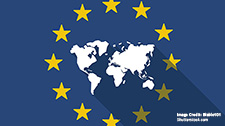Baltic Joint Investigation Team: A New Working Method against Transnational Crime
Walter Kegö and Cemal Özkan
In their pursuit of preventing organized crime over the last two decades, EU member states have increased information exchange among law enforcement agencies, introduced more uniform legislation, established agencies such as Europol and devised common strategies. Nevertheless, organized crime is still on the rise.
Related Publications
-
Europe, It’s Time to Wake Up on Research Security
Europe’s innovation scene is vibrant. It leads in automotive tech, green energy, and critical dual-use technologies. Yet, for all its brilliance, the EU is leaving its doors wide open. State-sponsored actors […]
-
Navigating the Indo-Pacific: How Australia and the EU Can Partner for Peace, Stability, and Prosperity
To navigate the choppy waters of the Indo-Pacific, the EU and Australia must be on the same wavelength regarding shared interests in rules, values, and an open and liberal economic […]

